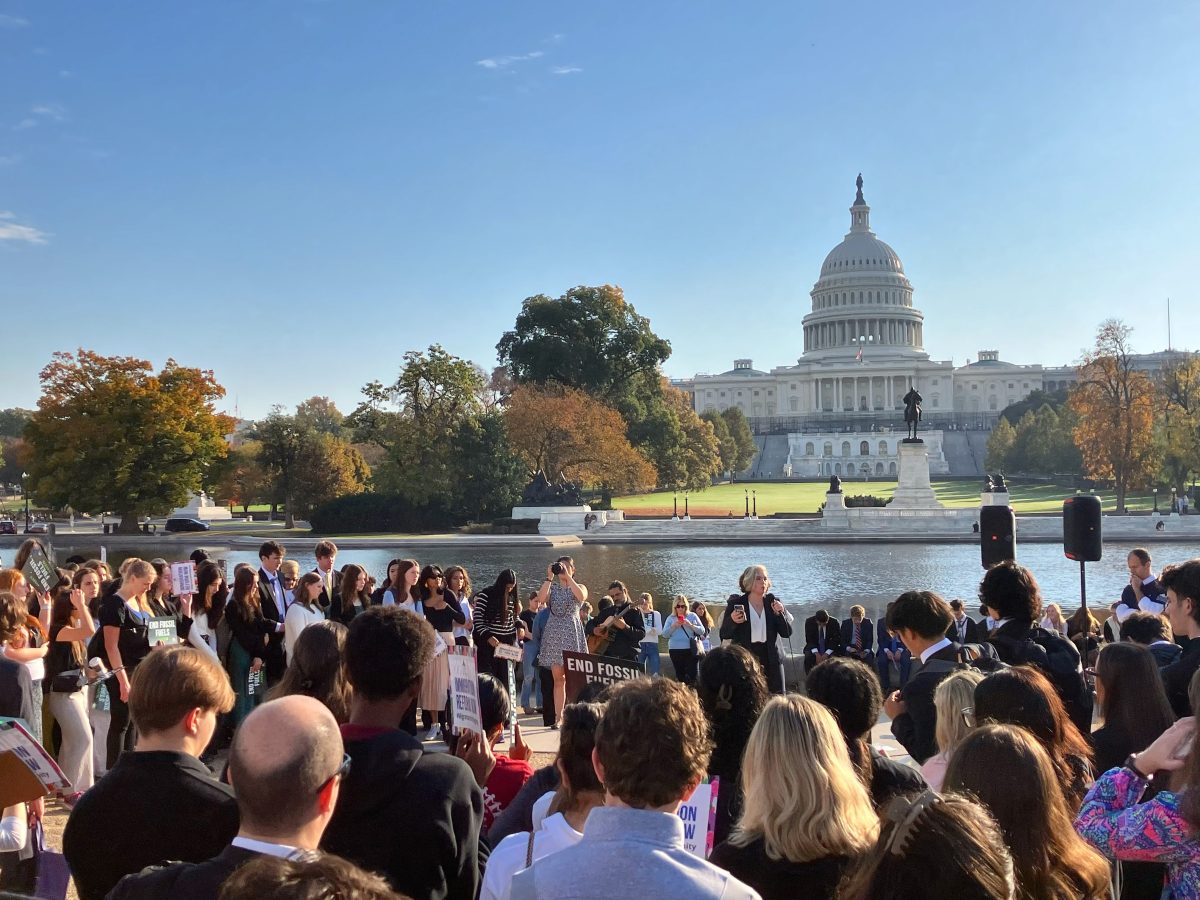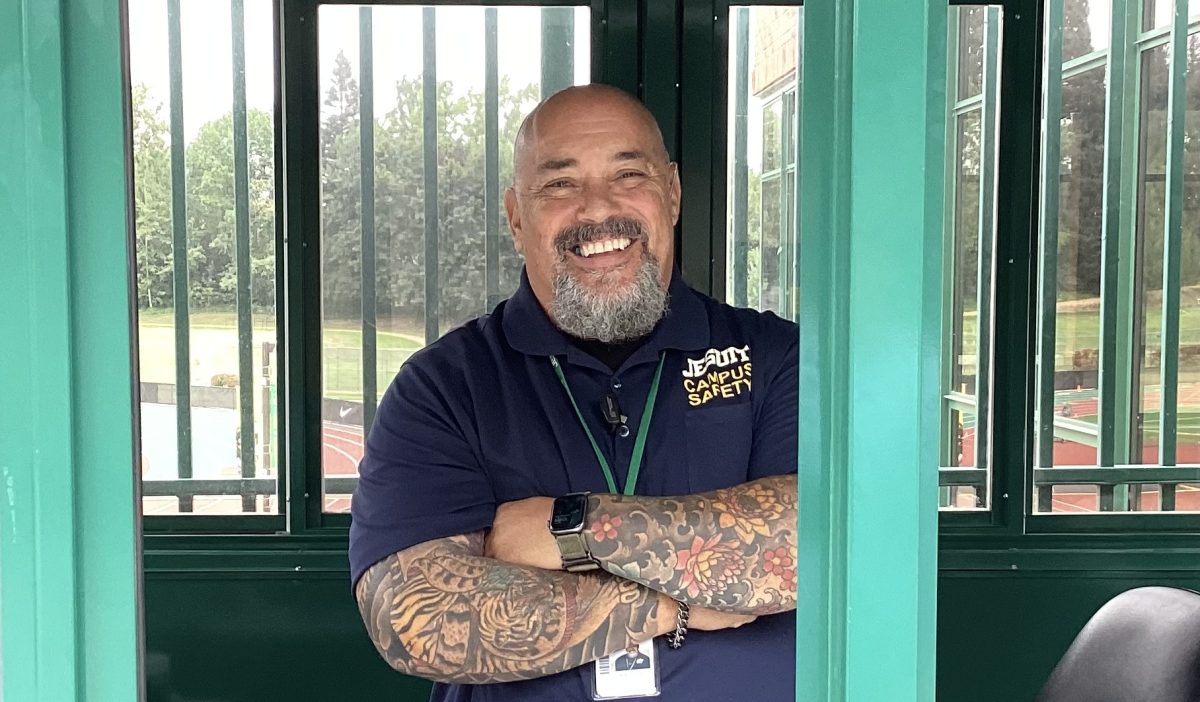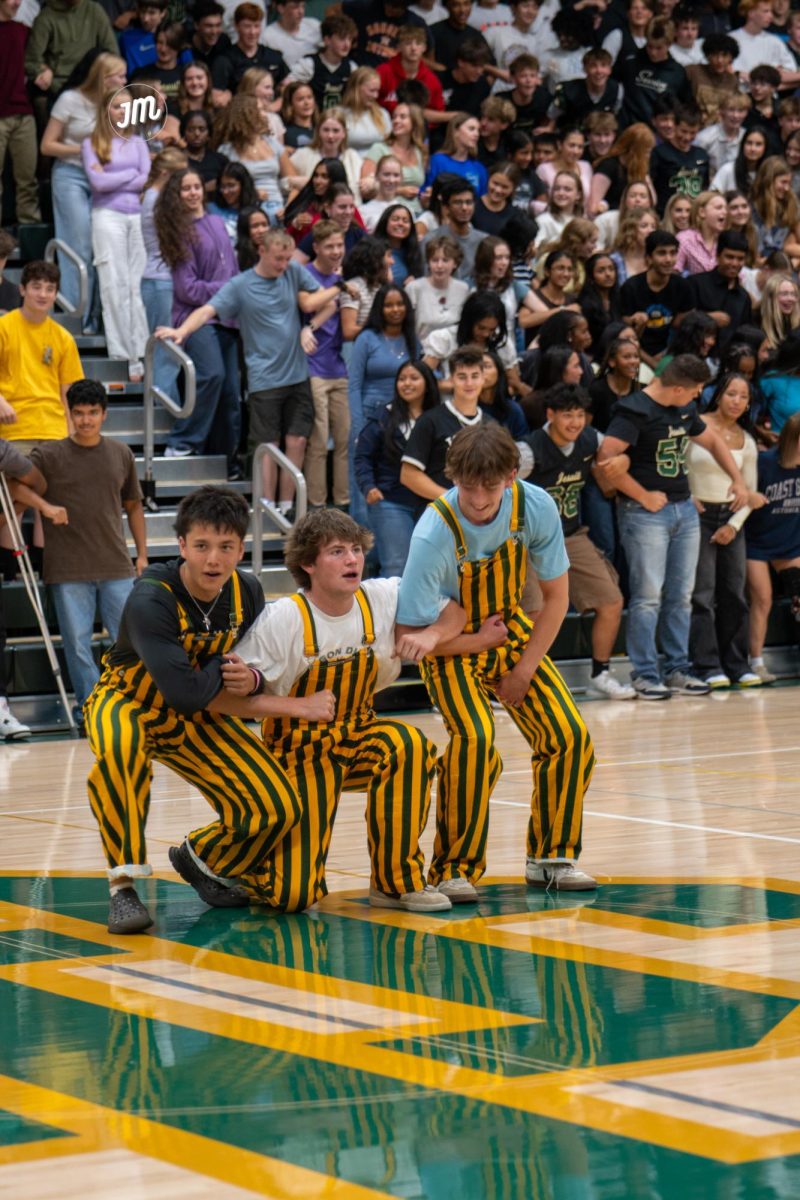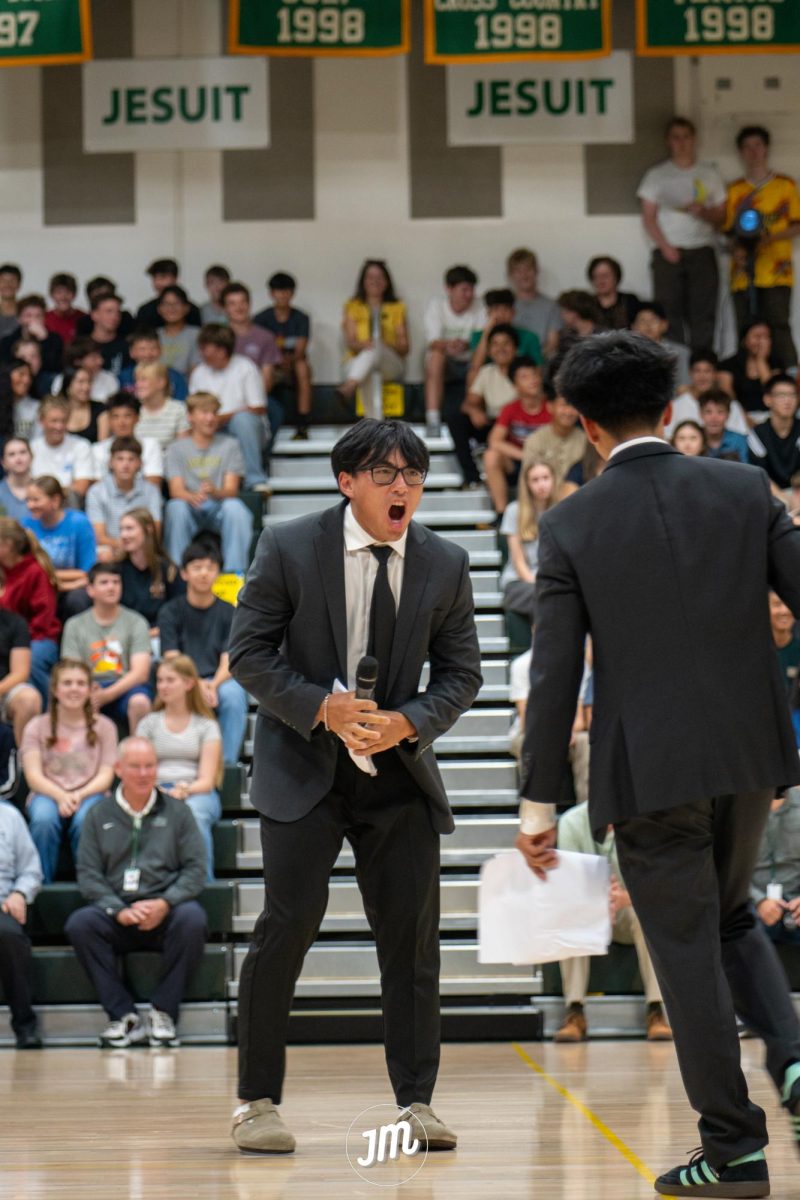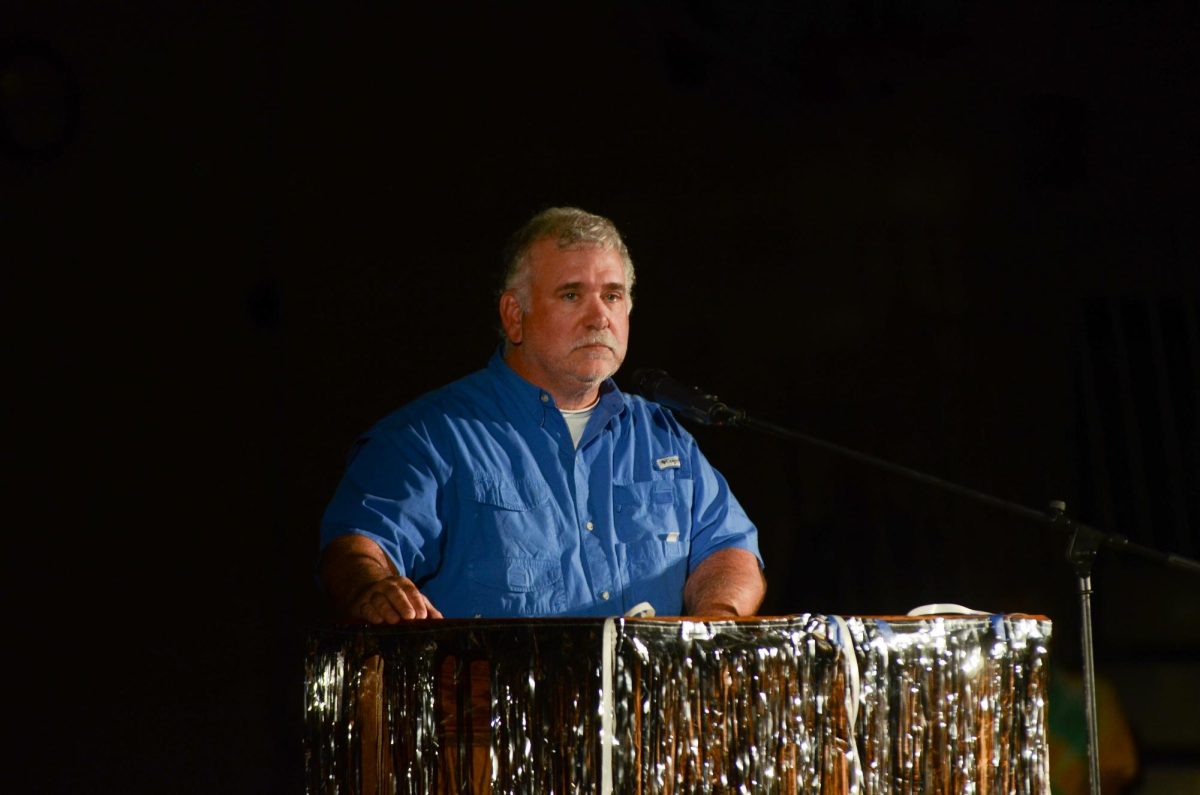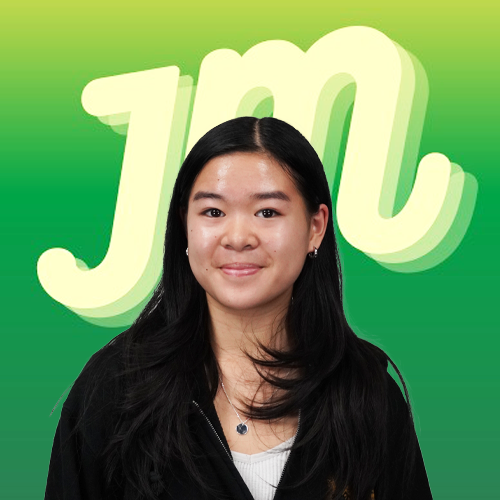On October 27, delegates from high schools across the country met in Washington D.C. to share and discuss social justice issues. Twenty Jesuit students attended, bringing their experiences back home.
Jesuit faculty and students have attended the Ignatian Family Teach-in for Justice (IFTJ) since the early 2000s.
IFTJ originally started as a memorialization of the Jesuit martyrs in El Salvador, who were murdered in their home in 1989.
In preparation, five weeks prior to the teach in, Jesuit students gathered in room 58 every Tuesday morning dispersing into one of three interest groups; environmental, migration and criminal justice.
“For me, I chose to be in the environmental justice group,” junior Lucy Robb said.“I worked on researching some bills to be proposed and ideas that we could talk about with Oregon representatives and their congressional staff.”
“At these meetings, we also got to know each other more as a group which was really helpful going into the weekend,” Robb said.
After arriving in DC Friday evening, students were able to hear from different speakers, attend numerous breakout sessions, reflect at the MLK memorial, explore DC, and engage in community building activities with other IFTJ participants.
The opening meetings and keynote speeches were broadcast throughout the world. Senior Maansi Singh spoke on the second day of the conference.
For Singh, the process for giving a speech at IFTJ started in July.
“On the Ignatian Family Teach-in website, there’s a place where you can go and say, ‘Hey, I want to give a mainstage or breakout speech.’ And so I applied for it in July,” Singh said.
Singh leads Jesuit’s chapter of Encode Justice, a global coalition of youth activists dedicated to using artificial intelligence and technology ethically.
“In our current age, computer scientists and people who are interested in technology ethics, those are the people that are becoming very valuable for innovation, that’s driving what we do today[…] In Encode justice we work within the Oregon chapter, […] and we’ve been working very closely with the [Oregon] Department of Justice, with PDX privacy, and with Smart City PDX aligned organizations to draft policy proposals that focus on increasing transparency with AI surveillance technologies, ” Singh said.
Singh’s speech was about how to create a sustainable and equitable solution to the situation that AI puts society in, as well as her work with Encode Justice.
Singh said that her speech at IFTJ was the first she had given in front of such a large audience.
“I’ve always been okay with speaking, sort of, very passionate about the ideas that I talked about. I think a lot of that fueled the coincidence that I was able to have leading up to the Teach-in[…] You see everyone and you’re like, Okay, this is my six and a half minutes to tell, you know, the world what I want them to know about what I’m doing and what’s important to us. So it’s a little nerve wracking,” Singh said.
However, she was grateful that her speech reached the people in the room.
“I think at the end of it, I’m glad that a lot of people bought the message I was attempting to send,” Singh said.
The culminating event of the weekend was advocacy day. After weeks of preparation, students and faculty from Jesuit joined a thousand other IFTJ participants on Capitol Hill. Dispersed into groups of four, students trekked to the offices of Oregon state representatives and Congress members, advocating for reform rooted in justice.
“I saw so many different perspectives that I couldn’t have realized if I didn’t go to the teach in. Just being in Portland, we have our own perspectives of social justice, and the issues surrounding them,” said Robb. “Seeing people from Arizona, New York, Kansas, and all of their ideas and takes on climate change and political justice, it’s really cool to see, and I’ve gotten so many new perspectives that I can consider in the future.”
Singh and Robb said that they were happy to have had the experience.
“I’m really thankful to Ms. Casey and Ms. Schmitt for giving me this opportunity,” Singh said.
“It was really fun to just kind of get together, share our passions for justice, and work together as a school and a community,” Robb said.



